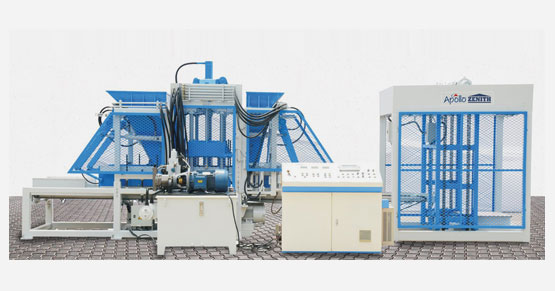Table of Contents
Introduction
Choosing the right concrete block making machine is critical for ensuring the efficiency and success of your construction project. The right machine can significantly impact your production capacity, block quality, and overall project costs. This guide will help you navigate the process of selecting the best automatic concrete block making machine based on your project requirements, budget, and production capacity.
Understanding Your Project Requirements
The first step in choosing the right machine is to understand your specific project needs.
Project Size and Scale
Consider the size and scope of your project. Large-scale construction projects will require a high-capacity machine, while smaller projects might be adequately served by a lower-capacity unit.
Types of Blocks Needed
Different projects require different types of blocks, such as hollow, solid, paving, or interlocking blocks. Ensure the machine you choose can produce the types of blocks your project requires.
Production Volume Requirements
Estimate the number of blocks you need to produce per day, week, or month. This will help you determine the production capacity required from the machine.
Types of Concrete Block Making Machines
Manual Block Making Machines
- Features and Benefits: These machines require manual operation, making them more suitable for small-scale projects. They are less expensive but require more labor.
- Suitable Projects: Ideal for small construction sites or start-up businesses with limited budgets.
Semi-Automatic Block Making Machines
- Features and Benefits: These machines offer a balance between manual and automatic operation. They reduce labor requirements and increase production efficiency.
- Suitable Projects: Suitable for medium-sized projects where moderate production capacity is needed.
Fully Automatic Block Making Machines
- Features and Benefits: Fully automated machines handle the entire block making process with minimal human intervention. They offer high production capacity and consistent block quality.
- Suitable Projects: Best for large-scale projects and commercial production facilities.
Key Factors to Consider
Production Capacity
Determine your required output and ensure the machine’s capacity matches this requirement. Overestimating or underestimating can lead to inefficiencies and increased costs.
Automation Level
Decide between manual, semi-automatic, and fully automatic machines based on your budget, labor availability, and desired production efficiency.
Budget Constraints
Consider both the initial investment and the ongoing operational and maintenance costs. Sometimes, a higher upfront cost can be justified by lower long-term expenses and better efficiency.

Technical Specifications
Mold Options and Flexibility
Check the variety of molds available and their ease of interchangeability. Customizable molds allow for greater flexibility in the types of blocks produced.
Power Requirements
Ensure the machine’s power requirements are compatible with your site’s electrical infrastructure. Energy-efficient machines can help reduce operational costs.
Durability and Build Quality
Look for machines made with high-quality materials and robust construction. Durable machines require less maintenance and have a longer lifespan.
Supplier Reputation and Support
Choose a reliable manufacturer with a strong track record. Consider their after-sales support, availability of spare parts, and customer reviews.
After-sales Support and Services
Good after-sales support can save you time and money by ensuring prompt repairs and maintenance.
Availability of Spare Parts
Ensure the manufacturer provides easy access to spare parts to minimize downtime in case of repairs.
Maintenance and Operation
Ease of Maintenance
Choose a machine that is easy to maintain, with accessible parts and clear maintenance instructions.
Training Requirements for Operators
Consider the training needed for your staff to operate the machine efficiently. Some manufacturers offer training programs to help your team get up to speed.
Common Issues and Troubleshooting
Understand common issues that may arise with the machine and how to troubleshoot them. This can help prevent minor issues from becoming major problems.
Environmental Considerations
Energy Efficiency
Energy-efficient machines can reduce operational costs and minimize environmental impact.
Waste Management and Recycling Capabilities
Consider machines that offer waste management and recycling features to enhance sustainability.
Future Trends in Concrete Block Making Machines
Innovations in Automation and Technology
Stay informed about the latest technological advancements, such as AI integration, IoT connectivity, and improved automation.
Sustainability and Eco-friendly Solutions
Future trends will likely focus on reducing environmental impact through energy-efficient designs and sustainable materials.
Conclusion
Choosing the best concrete block making machine involves considering multiple factors, including project requirements, machine types, production capacity, budget, technical specifications, and supplier reputation. By carefully evaluating these aspects, you can select a machine that ensures efficiency, quality, and cost-effectiveness for your project.
Table of Contents
